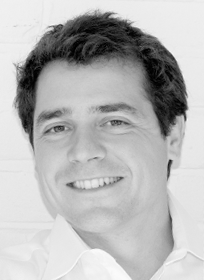
Ask any successful person what they credit for their achievement and they will almost certainly mention the power of a ‘can do’ attitude.
Churchill once proclaimed that ‘Attitude is a little thing that makes a big difference’ and it has now found a place in technology: this article in New Scientist details how children can learn a positive mind-set from robots:
Kids can pick up attitude from robots they play and learn with
The difference between ‘can’ and ‘can’t’ is a single letter, yet it can be easy for children to fall foul of the latter – and harder still to change.
Maybe they are battling with maths homework, failing to master an instrument or falling behind on the sports field, yet the same outcome is apparent across the board: your child begins a task only to become frustrated, and it’s not long before the workbook/sheet music/football is hurled to the floor with an alarming cry of, ‘I. CAN’T. DO. IT!’
Children can be quick to internalise a sense of failure. They notice if they are not the fastest in P.E. or the smartest in the classroom and left unchecked, the ‘I can’t’ mind-set can precipitate low self-esteem and a belief that failure is inevitable.
So how can parents help?
It is tempting to launch a rescue mission when we see our children struggling. Our rational brains are overwhelmed with the need to help, care and protect –not to mention our own desire to see our children succeed. But by diving in, we deprive children the chance to problem solve for themselves and, in turn, to derive a sense of competency. Children feel superfluous when we do it for them and we unwittingly reinforce the message that your child can’t.
Instead, help your child break down the task into manageable steps. Let them gain mastery over the first step before moving on to the next; the task will seem far more achievable and a solid foundation will set them up for success later on.
Next, create opportunities for children to achieve at home. Could your child take charge of the dinner menu for the week? Could they contribute research towards your next family holiday? Giving your child agency – and listening to their advice – bolsters their sense of self-worth.
Defer to your child – let them be an ‘expert’. Older children leap at the chance to answer homework questions for younger siblings and love impressing parents with their knowledge. A school project, a favourite TV show or Chelsea’s chances in the league: whatever the topic, ask your children for their insight.
As with all things, reinforcing positive behaviour helps children to internalise their own success. Comments like, “You thought you couldn’t do it but look what you’ve achieved!” remind little ones that they have made progress – and it’s all down to a ‘I can’ attitude.
Find out more

 Hugo Shephard is the Managing Director of Role Models. The Role Models philosophy is to nurture character in children because they believe that ‘soft skills’ are as important as academic attainment. They focus on the individual strengths of every child and are deeply committed to supporting them through their formative years, whether that be through their Creative Childcare, Life Skills Courses or Special Needs Camps.. Before founding Role Models, Hugo worked at Ernst & Young as a Management Consultant in the healthcare sector.
Hugo Shephard is the Managing Director of Role Models. The Role Models philosophy is to nurture character in children because they believe that ‘soft skills’ are as important as academic attainment. They focus on the individual strengths of every child and are deeply committed to supporting them through their formative years, whether that be through their Creative Childcare, Life Skills Courses or Special Needs Camps.. Before founding Role Models, Hugo worked at Ernst & Young as a Management Consultant in the healthcare sector.
Connect with Hugo:
|
|
